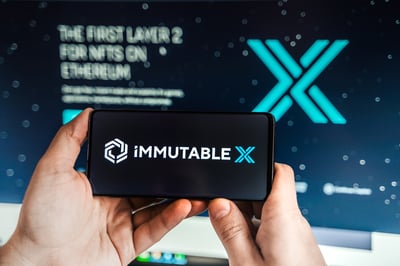It’s been a mixed year for DeFi, which has reconciled falling TVL amidst the backdrop of a lingering bear market that’s taking longer than expected to shake out. At the same time, innovation has continued apace, with significant progress being made in tokenizing real-world assets (RWAs) and in liquid staking. This has served to increase institutional participation, opening DeFi to a broader investor class.
This year, staking has become the frontier where much of the action and innovation occurring in DeFi can be found. $21B is locked into Ethereum liquid staking protocols alone, with market leader Lido boasting over 300,000 stakers. As the liquid staking market matures and spawns new primitives, such as EigenLayer’s restaking, another adjacent technology is coming to the fore. Interest in Distributed Validator Technology (DVT) is rising as the need for greater network security heightens.
DVT Aims to Mainstream Network Validation
The 32 ETH minimum required to run an Ethereum validator and earn staking rewards has a cost and complexity barrier that places it beyond the reach of most users. The need to democratize this process, allowing more users to participate in staking and earn a reward for their efforts, is what gave rise to liquid staking. Something similar is now occurring with DVT.
Pioneered by SSV.network, Distributed Validator Technology allows validators to be controlled by multiple node operators. Just as multisig allows control of a wallet to be shared between several parties, DVT allows the same to be done for a validator’s private key. As a result, multiple node operators can participate in network validation duties. But what’s the benefit of being able to do so?
DVT offers three key advantages. The first is that, like liquid staking, it allows more people to participate in the validation process. The second is that doing so enables an individual validator to become geographically distributed. From a decentralization and security advantage, this confers obvious benefits. A network protected by distributed validators is highly resistant to attack and virtually uncensorable.
Finally, should a validator go offline for extended periods or be somehow compromised, the staker is subject to slashing. By assigning control of a single validator to multiple entities, the likelihood of this happening is significantly reduced. By sharing the responsibility for maintaining uptime, a shared validator set can lower the likelihood of financial penalties being applied.
Distributed Validator Networks Enter Production
The next phase in making DVT a working reality has now begun as the first dedicated networks are coming onstream. Chief among these is SSV.network, whose mainnet launched on September 14. Anyone can register their validator with SSV.network to distribute its operation between multiple staking providers. Obol is also developing its own DVT network, further increasing the options available to Ethereum validators.
The rise of liquid staking has been good news for end users, who are free to stake and withdraw ETH whenever they like, with no minimum. This has come at the expense of centralization, however, in terms of staking providers, with Lido, Coinbase, Rocket Pool, and Binance dominating. DVT has the ability to reduce this creeping centralization, not least in enabling staking pools to decentralize their own infrastructure.
A number of revamped DeFi protocols are focusing on liquid staking tokens to supply the collateral that will power lending and stablecoin issuance, Synthetix among them. Ethereum staking is becoming the bedrock that will power much of the innovation built on top. As a result, the need for staking solutions that are robust and immune to smart contract risk is greater than ever. If Distributed Validator Technology can strengthen Ethereum staking while increasing participation, it will be a welcome addition to DeFi.
 Nikolas Sargeant
Nikolas Sargeant





